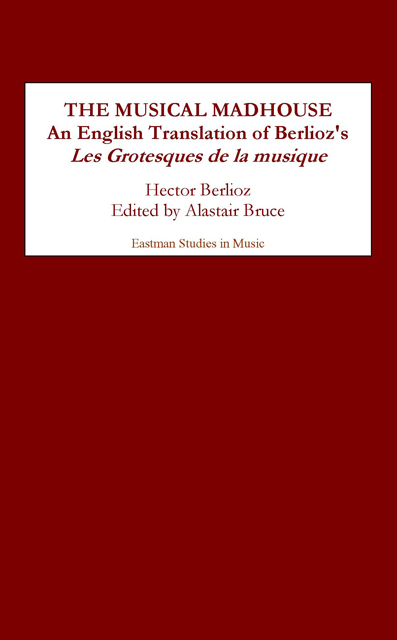A cantata
Published online by Cambridge University Press: 21 March 2023
Summary
Shortly before the ashes of the Emperor Napoleon I were returned to Paris, Messieurs Auber, Adam and Halévy were asked to write funeral marches for the procession accompanying the late Immortal to the church of the Invalides.
In 1840 I had been commissioned to compose a symphony for the removal of the remains of the victims of the July Revolution and the inauguration of the Bastille column; as a result several newspapers, under the impression that this type of music was my speciality, announced that I was the composer honoured with the Minister’s favour once again on this solemn occasion.
A Belgian amateur, misled like many others, sent me a packet containing a letter, some verses and some music. The letter went like this:
“Monsieur,
“I see from the papers that you’ve been engaged to compose a symphony for the ceremony of removing the Imperial ashes to the Panthéon. I’m sending a cantata for you to fit into your work; sung by seven or eight hundred voices it should produce quite an effect.
“You will notice a break in the poem after the verse ‘Nous vous rendons votre Empereur’. I’ve only been able to complete the music, as I’m not much of a poet. But you’ll have no trouble filling the gap: you could get Hugo or Lamartine to do it. I am married with three populos (children)— if the piece brings in a few francs I’d be glad if you’d pass them on to me. I’ll let you take all the credit.”
Here is the cantata:
He let me take the credit!!!
- Type
- Chapter
- Information
- The Musical MadhouseAn English Translation of Berlioz's <i>Les Grotesques de la musique</i>, pp. 14 - 16Publisher: Boydell & BrewerPrint publication year: 2003



